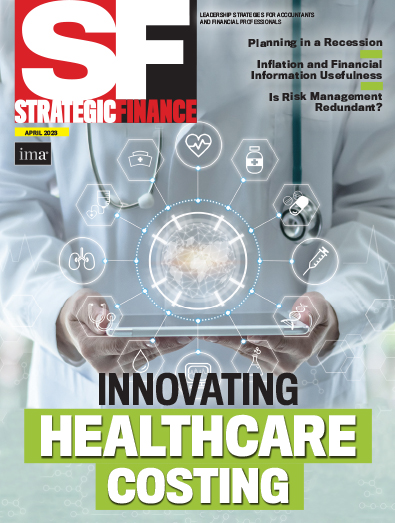The global cost of corruption, including bribery and theft, is approximately $3.6 trillion annually, which is around 5% of global gross domestic product, according to the World Economic Forum.In September 2022, the International Federation of Accountants (IFAC) issued the five-step Action Plan for Fighting Corruption and Economic Crime (Anti-Corruption Action Plan) for accounting and finance professionals to help clean up such corruption through education, partnerships, standards setting, and global policy frameworks. Finance professionals play a pivotal role in fighting corruption, according to Scott Hanson, director of policy and global engagement at IFAC.
What is corruption? First, people steal public funds. Second, there’s informal taxation through demanding bribes. This can cause costs to go up with no commensurate increase in the quality or quantity of products or services. Third, competition is distorted when lower-quality goods and services are purchased at worse prices.
“In all three scenarios, the taxpaying public isn’t getting the full potential benefit from their tax contribution,” Hanson says. “You also have indirect impacts like stymieing investment and entrepreneurship.”
The money that’s lost to corruption could’ve funded initiatives geared toward achieving critical objectives. The United Nations (U.N.) notes that trillions of dollars of annual global investment are needed to achieve the U.N. Sustainable Development Goals (SDGs).
“Essentially, we’re losing half of the money needed to achieve the U.N. SDGs to corruption, which we simply can’t afford,” Hanson says. “The public and private sectors need to work together to counter corruption and economic crime at the global and domestic levels.”
The seventh SDG—Affordable and Clean Energy—states that financing a transition to cleaner energy requires significant public investment, married with effective markets and level private-sector competition, which corruption significantly constrains.
“These issues are complex and involve a number of actors—that’s why IFAC’s Anti-Corruption Action Plan focuses on how the accountancy profession can best support an ecosystem of business, government, global policy makers, and others to enhance organizations’ transparency and accountability,” Hanson says.
ACTION STEPS
IFAC’s Anti-Corruption Action Plan provides a framework for enhancing the management accounting profession’s contributions in combating corruption and economic crimes, thereby advancing the U.N. SDGs. The framework includes more than 30 recommended actions.
“Accountants are essential in the fight against corruption because we bring transparency, relevance, and integrity to the systems that underpin vibrant economies, making corruption and economic crime less profitable and easier to prevent,” Hanson says.
The establishment and adaptation of global standards based on quantitative evidence aid organizations and governments in identifying and responding to financial crimes. Additionally, accountants support strong and sustainable government institutions and financial markets through regular audits.
To reduce corruption, there must be a partnership between the public and private sectors. The Basel Institute on Governance promotes collective action, and the IFAC plan aims to bring awareness of collective action, anti-fraud and anti-corruption strategies, and risk management to the accounting profession.
“While it’s true that public-sector financial professionals are on the front lines overseeing the use of public funds, the private sector also plays a significant role in combating corruption and fraud and ensuring trust in business and the capital markets,” Hanson says.
Private-sector finance professionals have a critical role in identifying and managing fraud and corruption risk and implementing anti-fraud and anti-corruption measures and controls. They’re also tasked with driving an ethical organizational culture.
“Finance leaders ensure that conflicts of interest are avoided, that bribes aren’t paid, that companies compete in the marketplace with integrity, and that compliance functions are robust and adequately funded,” Hanson says.
COLLABORATION IS KEY
Accountants represent one point in a dynamic and interconnected network. IFAC’s Anti-Corruption Action Plan enhances what finance professionals can do to fight corruption by exploring the role of anti-corruption training and education. Further, it addresses how accountants can help other actors in the ecosystem to do their parts more effectively. IFAC is developing a strong evidence base around anti-corruption corporate reporting, with the goal of helping global and domestic policy makers make better-informed decisions.
“The accounting profession has an extensive reach, as it touches nearly every business and public-sector entity worldwide,” Hanson says. “Every organization looks to accountants as a trusted group with moral and ethical responsibilities to do their part.”
The reputation of the profession hinges on its adherence to ethics. The International Code of Ethics for Professional Accountants (including International Independence Standards), or the Code, issued by the International Ethics Standards Board for Accountants (IESBA), outlines fundamental principles that establish a strong baseline of expectations for ethical behavior and a responsibility for accountants to act in the public interest. That plays a crucial role in the Code’s Responding to Non-Compliance with Laws and Regulations (NOCLAR) standard, which obligates accountants to root out corruption and fraud, including embezzlement, bribery, money laundering, and tax evasion.
“Accountants simply cannot turn a blind eye,” Hanson says. “The standard lays out a framework to guide accountants in responding to NOCLAR.”
NOCLAR has been implemented worldwide. Consistent with accountants’ public-interest responsibility, a potential response to corruption or fraud is becoming a whistleblower by disclosing the matter to an appropriate authority.
“To be most effective, NOCLAR needs to be supplemented by robust whistleblower-protection legislation,” Hanson says.

April 2023



